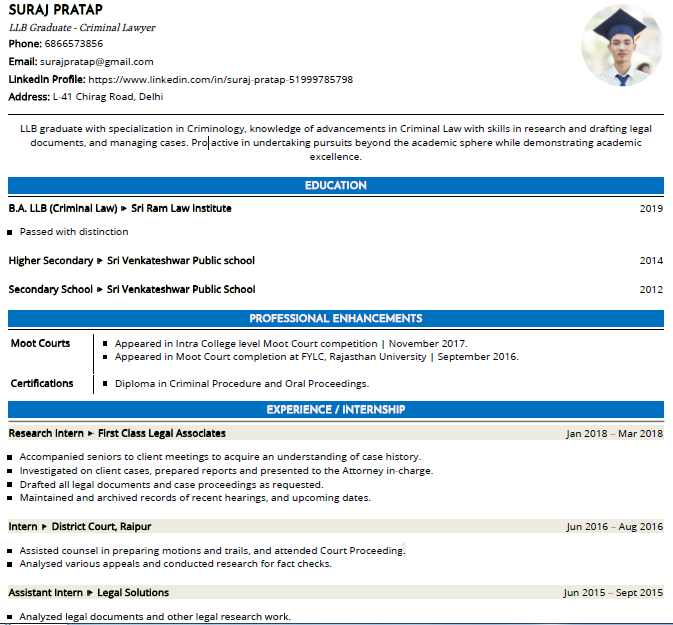RESUME and BIO-DATA - How are the two different?
Both Resume and Bio-Data serve different purposes; while a resume is most acceptable and commonly used document for applying jobs, Bio-data is used in India primarily for job purposes. It depends upon the candidate to choose a format as per his/her requirements.
Both resume and bio data play a role in recruitment as they both are crucial in providing information about the candidates applying for various job profiles. However, there lies a stark difference between the two which is important to consider.
The basic difference that separates the two is the system of presentation, their respective uses and the diversity of content.
Here are a few things to note about a Resume
1. Resume, deriving its roots from a French word meaning “summary” or “extract”, simply refers to a synopsis of a candidate’s academic qualifications, previous employment experience, evident skills and interests which are important and pertinent to the job profile.
2. A resume doesn’t list all the details of a candidate’s profile. Personal details, barring the contact details, are deliberately avoided. The focus is on clearly highlighting specific skills intrinsic to the candidate are customized accordingly to suit the demands of the target job profile are mentioned.
3. Incorporating a formal tone, a resume is syntactically preferred to be crafted in the third person narrative, covering briefly about 1-2 pages of necessary information.

A Resume being a precise description of one’s skills and abilities is widely used by professionals, from beginners to established ones, to seek employment. Bio-data on the other hand is completely different and accounts for the following
1. Bio-data, an acronym used for Biographical data, is a lengthy and detailed description of candidate’s details, covering all personal as well as the professional essentials pertinent to the job.
2. Bio data usually considers both the personal and professional details and comprises of factual, verifiable experience and subjective, non verifiable ones including the candidate’s date of birth, gender, religion, race, nationality, residence, marital status etc.
3. Bio-data(s) are usually demanded in the government sector for specific jobs usually in institutions demanding more intrinsic information about the candidate.

Resume and bio data represent two different formats required of presenting information for both personal and professional purposes. While comparing the two of their relevance in today’s scenario, it is the former that asserts dominance in the professional sector with it ensuring a bias free recruitment, chiefly based on a candidate's qualifications and competencies. It abides by the professionalism required in a formal sphere of action, which clearly is not plausible in using a more self reflecting bio data of the candidate.
It chiefly depends upon the candidate to choose a particular format as per his/her requirement and situation. Resumod, a web based Resume building tools helps the candidate in selecting and crafting the professionally accepted resumes in attractive formats. One can log in to Resumod to create their resumes in few minutes.


